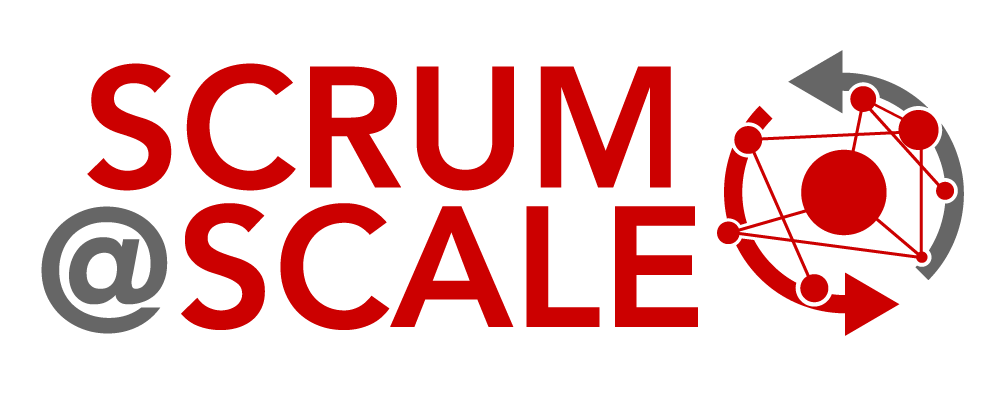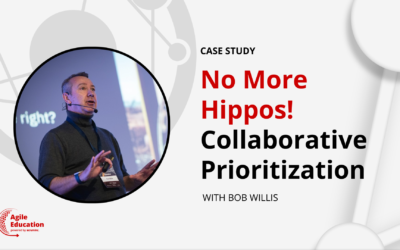Agile Education Case Study
Preserve Culture While Scaling: The Road Back to Cohesiveness
In “Preserve Culture While Scaling: The Road Back to Cohesiveness,” Gereon Hermkes tackles the complexities of maintaining a cohesive corporate culture amidst the explosive expansion of a technology firm. Gereon initiated a simple Scrum@Scale strategy focused on rejuvenating the core values of shared language, trust, and cooperation that had defined the early days of the company but began to deteriorate with rapid scaling.
CASE STUDY SNAPSHOT
Industry: Consulting
Organization Size: Small start-up
Topic: Adapting to Change, Continuous Improvement and Impediment Removal, Scaled Daily Scrum (SDS), Scaling Anti-Patterns, Leadership Participation
Date: 2019
Website: https://www.teamflow.de/de/
LinkedIn: https://www.linkedin.com/in/gereon-hermkes
Case Study Summary
Preserve Culture while Scaling with Scaled Daily Scrum
The “Einheit” concept—defined as communicating seamlessly through mutual understanding, using a minimum of key, well-understood phrases that are developed through familiarity, trust, and shared experience—was at the heart of a startup company’s foundational success. The founders emphasized a high-trust, decentralized, and cooperative culture from the start, and when the company was still small, it worked. However, the company struggled to preserve culture while scaling; as culture waned, sales stalled, leading to internal conflicts and the departure of numerous veteran employees. There was high decision latency, rivalry amongst teams, a general sense of unhappiness regarding management, and feelings of helplessness across the board. Employees had lost touch with what others were working on or struggling with, and the company lacked a common outlook. That’s when Gereon stepped in.
From a traditional business standpoint, it appeared that the company had three options: halt growth altogether, tolerate the chaos and deterioration of company culture and keep pushing forward with expansion, or embrace what Gereon refers to as the process trap. The process trap, a significant shift towards implementing new standard operating procedures, can be highly attractive amid rapid scaling when levels of chaos are high, but you risk losing large swaths of the original company culture. In this case, that original culture instated by the founders was worth saving. Gereon turned to a Scrum@Scale pattern to try and reinstate the Einheit that was present at the founding of the company. By introducing a Scaled Daily Scrum (SDS), Gereon aimed to reestablish this lost unity by enhancing communication, creating shared language across the company, and reducing barriers among teams.
The Solution: Scaled Daily Scrum as a Cultural Catalyst
In response to these challenges, Gereon implemented a SDS across eight teams. The SDS implementation served as a low-resistance method to foster frequent and effective interactions across the board. Emphasizing mutual trust and the importance of shared language and learning experiences, the initiative allowed teams to rediscover their collaborative spirit. Of key importance in this SDS implementation was the inclusion of leadership – leadership’s willingness to display vulnerability and focus on collective learning during the SDS played a crucial role in this cultural reinvigoration.
Key Outcomes
The Results: Revitalized Culture and Improved Business Outcomes
The results were profoundly positive. The section of the company that embraced the SDS witnessed an 8.87-fold increase in revenue with significantly higher margins. Furthermore, the group managed to elevate its pricing by 21%, while also enhancing employee qualifications and satisfaction. The results that they saw stemming from the SDS pushed them towards embracing other aspects of Scrum@Scale. This revitalization not only restored internal harmony, but also propelled the company to new heights of market success. By rekindling their sense of unity surrounding the culture of Einheit, they effectively enhanced internal collaboration, allowing teams to operate with greater autonomy and mutual support, which in turn accelerated decision-making and initiative-taking processes.
- Enhanced Internal Collaboration: The SDS fostered a more collaborative environment that encouraged self-sufficiency and initiative among teams.
- Increased Market Responsiveness: Teams were able to respond more swiftly to market opportunities, enhancing competitive advantage.
- Improved Employee Satisfaction: The cultural reset improved overall employee morale and job satisfaction, reducing turnover and fostering a more committed workforce.
The restoration of Einheit and the application of Scrum@Scale principles drastically improved their market responsiveness and allowed the organization to preserve their culture while scaling. The agility that they achieved enabled them to not only meet but exceed customer expectations, significantly increasing their competitive advantage in the market. Furthermore, this cultural shift greatly impacted employee morale, manifesting in heightened job satisfaction and markedly reduced turnover rates. The renewed engagement and commitment of their workforce were pivotal in achieving these outcomes.
About Gereon Hermkes
Gereon Hermkes is recognized for his innovative leadership in addressing the challenges of rapid organizational growth. His expertise in implementing Agile methodologies, particularly Scrum@Scale, has made him a pivotal figure in transforming workplace dynamics. His approach not only focuses on operational efficiency but also on nurturing an environment where trust and cooperation are paramount.



